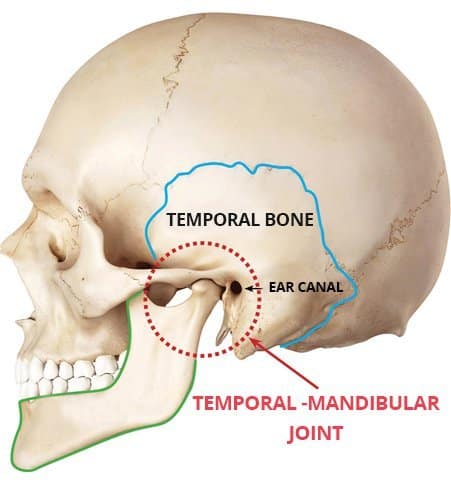TMJ – Temporomandibular Joint
 Have you ever experienced jaw pain or stiffness? You may be suffering from TMJ, short for temporomandibular joint. At times, this joint connecting the jaw bone to the bottom of skull can become misaligned due to a number of factors. This misalignment causes the jaw bone and surrounding muscles to move improperly. The muscles surrounding the area allow you to properly open and close your mouth. Here at Rockefeller Cosmetic Dentistry, we offer effective treatment options to reduce TMJ pain.
Have you ever experienced jaw pain or stiffness? You may be suffering from TMJ, short for temporomandibular joint. At times, this joint connecting the jaw bone to the bottom of skull can become misaligned due to a number of factors. This misalignment causes the jaw bone and surrounding muscles to move improperly. The muscles surrounding the area allow you to properly open and close your mouth. Here at Rockefeller Cosmetic Dentistry, we offer effective treatment options to reduce TMJ pain.
What is TMJ?
The temporomandibular joint is one of the most complex joints in the body. Its main function is to allow the jaw to move up and down, side to side, and back to front. There are also small fragments of cartilage that behave like shock absorbers to protect the bones from any excessive wear and tear.
Symptoms
Some common symptoms of TMJ include:
- Pain experienced in either one or both jaw joints
- Pain while chewing
- Stiff muscles surrounding the jaw
- Change or shift in teeth alignment
- Earaches
If you hear a popping or clicking sound however, that is not a definite sign of TMJ. Unless it is accompanied with other symptoms, such as pain, it is not necessarily involved with TMJ. It is common in many people that the jaw produces a popping and clicking noise while opening the mouth. If you experience any of the following symptoms, consulting with our experienced professionals is the next step to providing you with relief.
Causes
There is no definite cause to this joint disorder, however, there are several factors that contribute to TMJ. Painful TMJ disorder can occur due to:
- Grinding of the teeth
- The cartilage moving out of place
- A previous trauma, injury, or dislocation to the jaw
- Arthritis, which causes damage to the cartilage in the joint
- Misalignment of the jaw or teeth
How Can We Help?
In some instances, TMJ symptoms may disappear on their own without the use of any treatment. However, if the symptoms continue to occur or worsen, we recommend a variety of TMJ treatment options and appliances to help reduce the pain here at Rockefeller Cosmetic Dentistry. To schedule an appointment, or for more information on our services for TMJ disorder, contact our office today.
